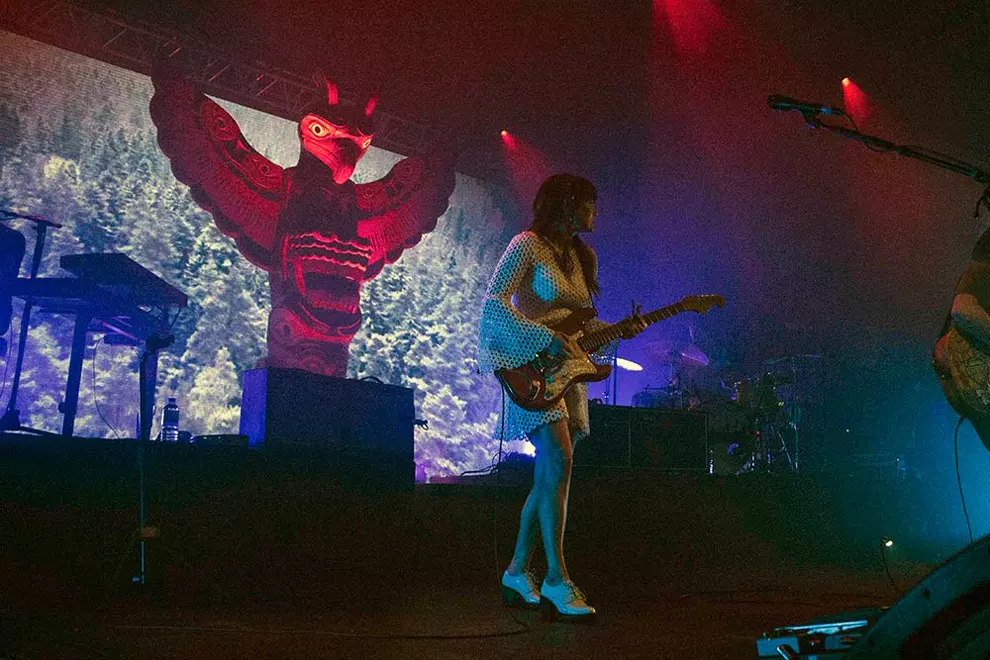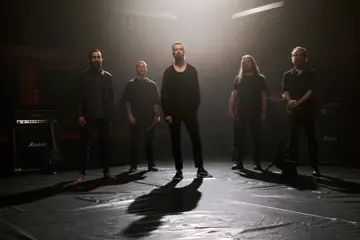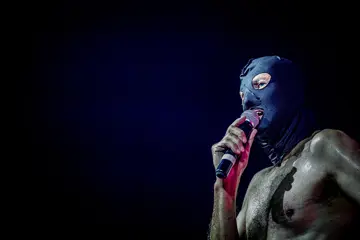In recent years, the world over has been embroiled in a series of reckonings when it comes to workplace safety and gendered discrimination, and the Australian music industry has been no different.
In late 2022, a groundbreaking investigative report was released.
The result of more than 1,600 interviews and survey questionnaires with members of the music industry, the Raising Their Voices industry report found that sexual harm and sexual harassment were “experienced and perpetrated by a range of music professionals”.
According to The Guardian, the independent investigation was commissioned in 2021 after a roundtable of music industry professionals was called to address mounting allegations of sexual harm, sexual harassment, and systemic discrimination within the industry.
Participants in the survey were asked whether they had experienced sexual harassment at any time in their career in the music industry and whether they had experienced sexual harassment in the last five years in the music industry.
Don't miss a beat with our FREE daily newsletter
Overall, 55% of survey participants reported that they had experienced some form of sexual harassment and sexual harm at some point in their career. 72% of female participants reported at least one experience of sexual harassment, compared with 39% of male participants. The highest levels of sexual harassment were reported by gender-non-conforming people: 85%.
Now, a couple of years on from the Raising Their Voices report, the industry is still in flux. It is undeniable that significant progress has been made, just as it is undeniable that there is still work to be done.
Runt! Records spoke to The Music about the current state of safety for non-men in music. Consisting of Lilith Malloy and Bella Veith, the independent events collective is celebrated in Tarntanya/Adelaide for its emphasis on supporting women and gender-non-conforming people in the music industry, both on stage and behind the scenes.
"The scene at the moment is in a really interesting place, I think,” says Veith. “So much is being done to improve people's experiences at gigs and events, and changing the culture surrounding shows and the lineups that are booked.
“At the same time, I think it's almost completely contradicted by others refusing to acknowledge all-male or un-diverse lineups, those who don't stand up against their shitty friends, and those who actively make spaces unsafe. It's really incredible for me to be able to contribute to the positive aspects of the scene, and I'm proud that I'm able to contribute to important change, but it's disheartening when I'm reminded that the change I am making is still very small."
Malloy adds, “I feel that grrrls being on stage is still viewed as such a radical act and inherently ‘other’ than their male counterparts. But these creatives have always existed as an integral part of the music scene and always will. Nothing Runt! does is new, and the safety these shows hopefully offer shouldn't be exclusive to spaces cultivated by women and GNC people. Please steal our ideas and take a critical look at the spaces you frequent."
Growing up frequenting gigs, local music-aficionado Aine says she learned to be “cautious” around men. “I don’t usually go out of my way to just strike up a conversation with a man the way I would with a woman, and pretty much all of the male friendships I have within the music scene I have met through my female friends, almost kind of like a trust system; like, if you feel safe around them it must mean that I can too.”
Cyclone Wehner, a prolific music journalist who has interviewed everyone from Beyoncé to Daft Punk, adds to the conversation.
“A big issue I face as a cis female music journalist (and especially live reviewer) is safety travelling to and from gigs, as many venues in Naarm/Melbourne are increasingly inaccessible with no or limited public transport and outside the CBD.”
In the 2000s and 2010s, Wehner wrote often about dance music as a contributing editor to 3D World and a weekly club reporter for The Herald Sun Hit, as well as editing the club section for Time Out Melb and DJing here and there. During that time, she felt “pretty safe” going out on her own. “The clubs I went to were welcoming and inclusive, and the promoters and security were caring about patrons,” she says. “But I was also earning enough as a music journalist to cover taxis late at night if I needed one [Wehner doesn’t drive or own a car].
“Now I don't have that option, just due to the economics of journalism. But public transport and moving around also feel riskier late at night. Toxic masculinity and the related aggression and threat of violence is an ongoing problem, but generally growing social inequality makes a city less safe.”
Thus, when reviewing, Wehner tends to favour festivals or concerts over late-night gigs out of town.
“Editors are super understanding, but I have had pushback from industry and publicists when I explain why I'm reluctant to review certain things – of course, they want quality reviews for their media reports, but a female journalist is restricted,” she says. “Rather than a plus one, I'd welcome a stipend for a taxi to be honest!”
She sums it up succinctly: “In the long run, this all impacts music journalism and coverage (which has historically had gender imbalances).”
Support Act - the charity which acts as “an industry leader in cultural and behavioural change” - has worked hard to tackle these issues of safety and discrimination.
The organisation has cultivated the program Access All Areas (first developed by CoHealth in collaboration with Music Victoria) to create “a safe and thriving music industry for all” in response to research, reports and disclosures of sexual assault, harassment and harm in the music industry.
Support Act spoke with The Music to outline what the workshop offers, and to offer insight on the state of the Australian music industry.
I’m interested in better understanding the issue of safety in the music ecosystem as a whole. I know that Access All Areas works to tackle this. Can you give me a brief rundown of what Access All Areas aims to achieve, and how it goes about that?
Access All Areas is a music industry training program designed to educate members of the music workforce on not only how to recognise sexual harassment, sexual assault and bullying, but to actively intervene.
The workshop uses evidence-based approaches to Active Bystander Interventions, and is always run by a mental health professional. Through personal reflection, group discussion and engagement with realistic case studies, participants explore and define what individual responsibility might look like when witnessing sexual harassment, sexual assault, and bullying. We focus on practical, accessible strategies to feel safe and confident speaking up and calling out abusive or oppressive behaviours.
How does your program operate in South Australia specifically?
Access All Areas operates in South Australia through a combination of online and in-person sessions. We offer online sessions that are open to anyone in Australia, including individuals and businesses in South Australia. These online sessions provide broad accessibility to the training.
Additionally, we collaborate with South Australian venues that wish to conduct the training in person. These partnerships allow for tailored training experiences specific to venue needs. We are committed to continuing to offer both in-person sessions in South Australia and online sessions to ensure accessibility and wider reach.
Do music venues generally seem receptive to your training?
We want to acknowledge the great work being done by South Australian venues in taking a holistic view of what it means to truly create a mentally healthy and positive workplace culture. It is encouraging to observe that many music venues recognise their crucial role in creating safe, compassionate and inclusive environments.
Many leaders within these venues have already shown enthusiasm, an awareness of their responsibility, and a strong commitment to empowering their staff. This includes providing them with the necessary knowledge and confidence to address inappropriate behaviours. This self-reflective and pragmatic approach to safety and inclusion is a positive step towards fostering a healthier music ecosystem.
What do you think music venues - specifically in South Australia if possible - are doing well in this capacity?
Music venues in South Australia have a sincere care for their staff, contractors, and attendees, and a commitment to create safe and comfortable spaces for all. Even by taking the step in reaching out to us, venues recognise their serious role in fostering safe environments. We are seeing an overall genuine prioritisation in the well-being of staff, contractors, and attendees, as well as a positive shift towards proactive rather than reactive measures.
And what are they not doing well?
While many venues are making positive strides, there is always room for growth in understanding the nuances of these issues and implementing strategies that foster a truly safe and inclusive environment for everyone. As an industry, there is a need to acknowledge the importance of ongoing and continued learning and improvement across the industry, even if that feels uncomfortable or confronting.
Combating these behaviours is complex and challenging, and changing deeply ingrained behaviours takes time. It requires ongoing effort to become aware of our individual power and privilege, and how these dynamics might influence workplace culture. True allyship to one another in the music industry is not only being cognisant of our privileges, but understanding the intersectionality of power, and leveraging our privilege to help lift up marginalised voices.
Do you view the music industry as worse than other industries when it comes to sexual harassment and assault - is it a more prolific issue in this industry than others?
The music industry has historically faced significant challenges with sexual harassment, assault, bullying, and discrimination. The 2022 ‘Raising Their Voices’ independent report noted that 55 per cent of the 1271 survey participants, from musicians to those working in senior levels at record labels, have experienced some form of workplace sexual harassment and sexual harm in their career.
However, it is also an industry actively working towards change, with artists, musicians, industry bodies and organisations advocating for and creating powerful change.
Unfortunately, some form of these issues affects all industries, and all workplaces have a legal obligation to provide a positive duty of care under the Respect@Work obligations. Everyone has the right to feel safe at work, no matter what that workplace looks like.
These issues are big, complicated and take time to change, but every action, direct or indirect, all adds up to collectively create cultural change.
If you or somebody you know is affected by the issues presented in this article, there are resources available to you, including:
Lifeline - 13 11 14
BeyondBlue - 1300 22 4636
Support Act - 1800 959 500
This piece of content has been assisted by the Australian Government through Music Australia and Creative Australia, its arts funding and advisory body

















